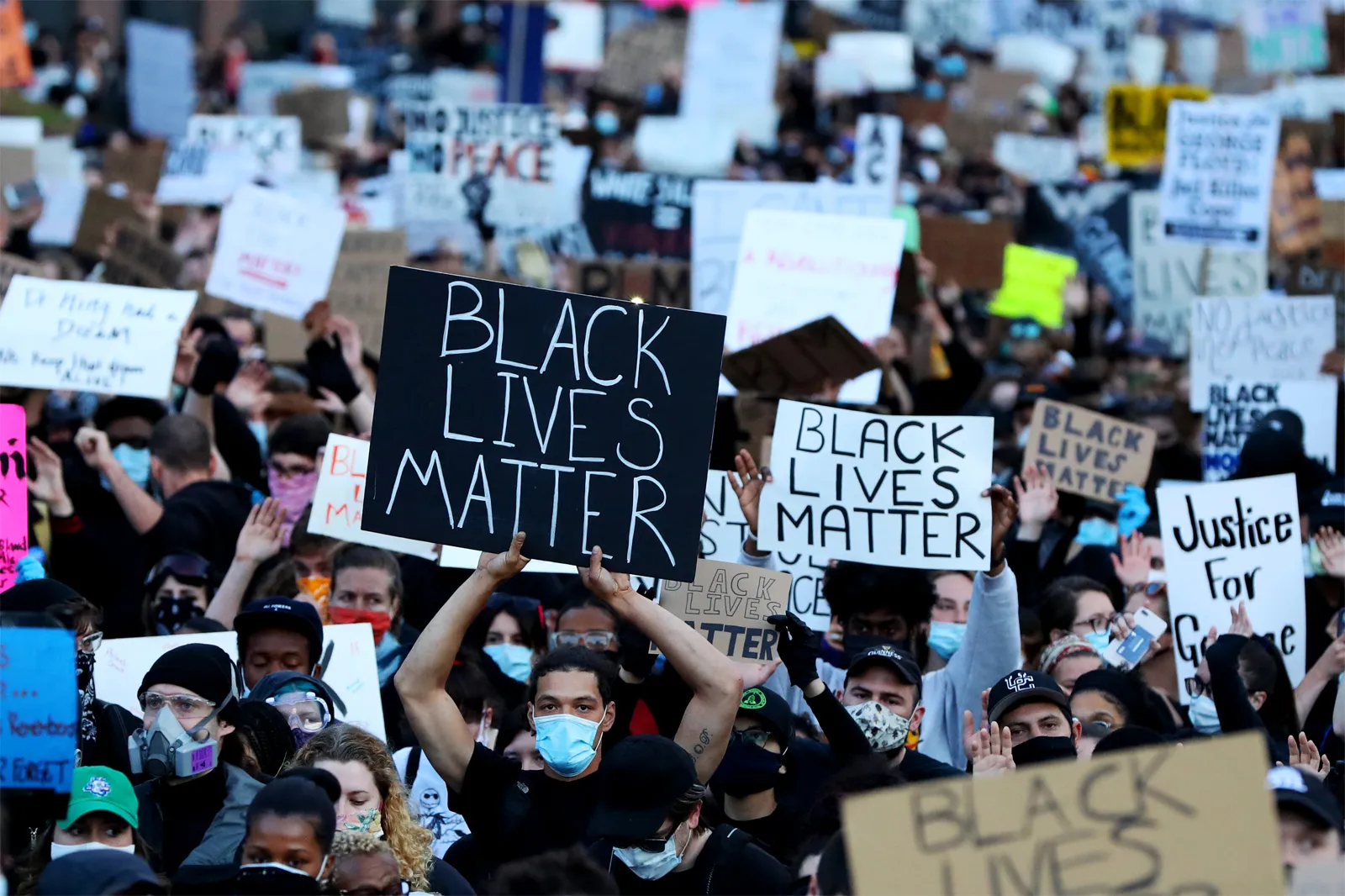The dream of a ‘post-racial’ US – Zara S
The concept of a post-racial society is the idea that the USA is an environment free from racism, discrimination and prejudice. Racism in the United States has a long and complex history that is arguably intertwined in the origins of the nation itself, immersed in its laws, attitudes and even constitution, beginning in the colonial era with slavery. However, the issue of slavery ultimately led to the American Civil War, with Lincoln’s Emancipation Proclamation of 1863 declaring slaves in Confederate territory to be free, with the 13th Amendment of the Constitution officially abolishing slavery in the United States. However this does not mean ideas of inequality, racism and segregation simply disappeared from society where such ideologies were engrained across hundreds of years, as seen through Jim Crow laws reaching into the mid-20th century. Although the civil rights movement sought to dismantle this segregation throughout America with landmark rulings such as brown vs. the Board of Education Topeka (1954) and the Civil Rights Act, making significant strides in improving discrimination, in modern times racism continues to persist. Efforts to combat racism in the United States are still ongoing, with issues such as mass incarceration, police brutality, voter suppression and inequality, proving that the systematic racism within the United States is still apparent and therefore it is not a post-racial society.
In modern America, there has been significant progress made in terms of civil rights legislation. For instance, following the murder of George Floyd in 2020 as a result of racist fuelled police brutality, the George Floyd Justice in policing act (2020) was passed by the House of Representatives. Which included measures to ban chokeholds and no-knock warrants, and created a national registry of police misconduct makes it easier to hold officers accountable for violations of civil rights in the US. Seeking to address police brutality and racial profiling within the justice system and to reform the US police departments in light of this tragic event. Moreover, the covid-19 hate Crimes Act (2021) was passed to facilitate the reporting of hate crimes and the response of federal law enforcement agencies due to the rise in the number of hate crimes, following the pandemic, directed towards Asian Americans and Pacific Islanders. Through legislation, the United States can legally enforce and prevent discriminatory hate crimes on the basis of race.
However, when prejudice and discrimination are established in every aspect of American society, legislation can arguably only do so much in a justice system with the foundation of inequality. For instance, people of colour, especially black individuals are often arrested and sentenced at a higher rate than white individuals with similar offences, displayed by the fact that black men constitute 6% of America’s population but are approximately 35% of the prison population, and being incarcerated at a rate 6 times more likely than white males. In 2008 and 2009 the average sentence for a white man was 55 months, and the average for a black man was 90 months. With poverty linking to limited access to job opportunities as well as the higher education needed to provide such skills that cannot be afforded in many cases. Inadequate schooling, underfunded education systems in areas of poverty and a lack of access to quality education in early childhood limit the upward prospects of minorities already trapped in the cycle poverty. With discriminatory practices in housing, employment and the justice system disproportionately impacting black individuals can further implement and exacerbate the effects of poverty towards minorities. Ultimately, whilst legislative efforts have undeniably marked progress in combatting civil rights challenges, the deeply rooted systemic racism in the criminal justice system and the cycle of poverty, continue to cast a shadow over the aim of equality and justice needed for a truly post-racial society.
Racial representation in Congress has been a critical and evolving need of American democracy. As demographics change, so must the expectations and responsibilities of elected officials. The election of Barack Obama as president in 2008, displayed to many that the political system was fully accessible to minorities and was marked as a symbol of racial progression in America. Obama’s candidacy and election as president not only sparked significant conversation of race in America but inspired many, particularly African Americans and other minority groups, to be involved in politics. This led to an increase in diversity in American politics at various levels. For instance, Biden’s cabinet is the most diverse in history. However, whilst Obama’s election marked a significant landmark in the pursuit of racial equality and representation within politics, it did not eradicate the deep-rooted structural racism and disparities in areas across society, such as education, employment, and criminal justice, although it highlighted the challenges and injustices that still need to be addressed to achieve a post-racial society. For instance, the unrepresentative nature of Congress displays how the political system does not adequately represent the population and arguably fails to provide representation for the needs of ethnic minorities in turn. For example, 10.45% of the 116th Congress were black Americans, in comparison to 12.1% of the population, and 8.5% were Latino in comparison to 16.7% of the population. The contrast between the composition of Congress and the diversity of American’s population, underpin the challenges of achieving full representation and equity. The unrepresentative nature of Congress displays the political system’s shortcomings and inability to address the needs of an evolving society.
To conclude, the concept of a post-racial society in the United States still remains an ambition, hindered by the nation’s history of systemic inequality and discrimination. Whilst significant strides have been made through civil rights legislation, and an increased representation in Congress, the persistent disparity within the justice system, education and the economy due to race display the challenges that continue to obstruct equality and justice. Addressing the complex and engrained issue of racism demands the dismantling of systemic barriers and institutions across society. Only through collective effort and changing attitudes can the United States hope to achieve a true post-racial society, in comparison to the reality we know.















Post Comment
You must be logged in to post a comment.